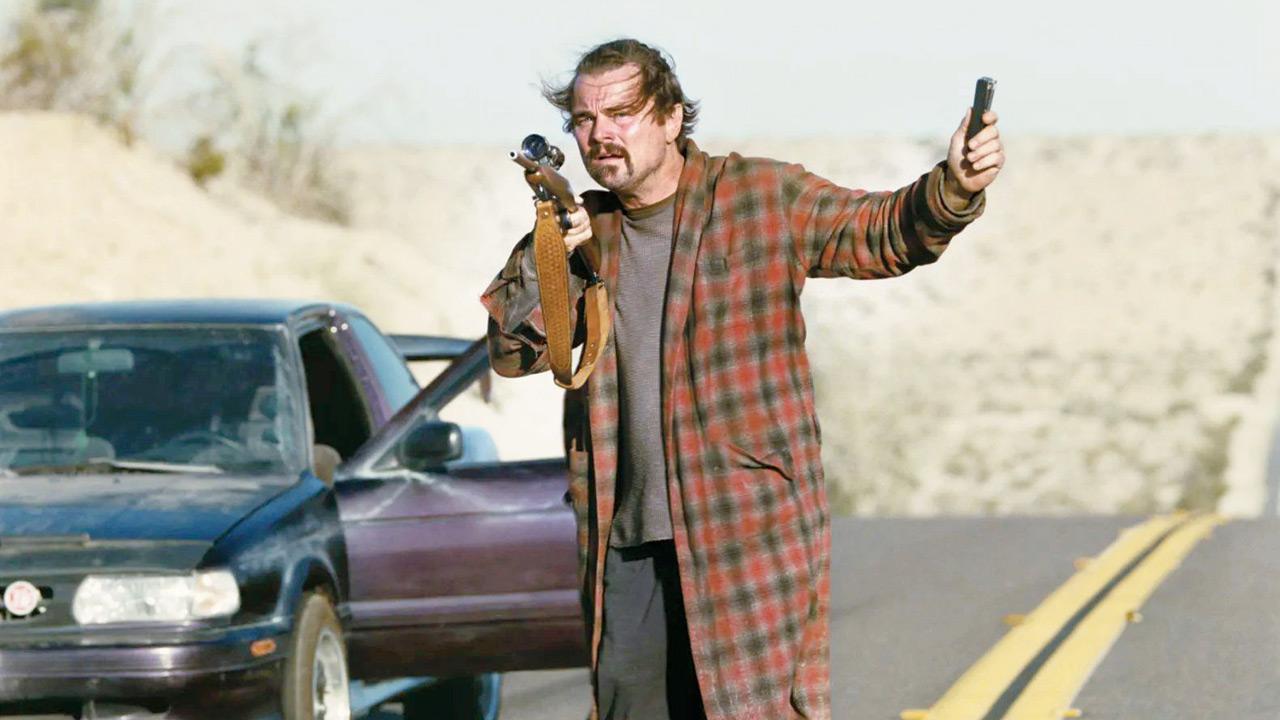Okay, some more PDA for PTA…

PTA just released his tenth action-thriller, *One Battle After Another* (2025). The near-universal PDA (public display of affection) for it suggests that it’s his most loved film yet. But is it really?
Firstly, for a writer-director, there are actually PTAs. By this, I mean expansions of his cleverly original writing and filmmaking, with a wider worldview and higher artistic ambitions. *Inglourious Basterds* (2009) was that pivot for Tarantino. Similarly, *There Will Be Blood* (2007) was that pivot for PTA—filmmaker Paul Thomas Anderson.
I remember walking across Berlin in 2007, wholly covered in billboards of *There Will Be Blood*, wondering if that was the only film premiering at the Berlinale (film festival) that year! What explained this blitzkrieg? Sure, it was PTA’s first film in five years (since *Punch-Drunk Love*), but more importantly, it starred Daniel Day-Lewis who, for an actor, is even more frugal with his filmic produce.
Auteurs achieve scale or go mainstream once best-known actors invest in them. Box office be damned, studios naturally follow. There are no greater fans of great directors and storytellers than fine actors; their role is like an annual bonus. How else to explain Bradley Cooper’s merely masculine monologue in PTA’s *Licorice Pizza* (2021)? Or Joaquin Phoenix’s maddest performance, *Joker* (2019), which arguably emanates from PTA’s *The Master* (2012) first?
The same thought applies to Indian mainstream cinema. However, we’ve progressively consumed every ounce of collective acclaim—press, awards, plaudits, reviews—transforming movies into sports measured solely by numbers. There’s also a perceptible bias favoring a certain type of film from the non-western world accepted at top film festivals, making Indian mainstream actors wary of taking the leap and aiming for the same global stage. Hopefully, this will change someday, but not yet.
What did a low-key surreal romcom, *Punch-Drunk Love* (2002), about a loser salesman with seven sisters, do for its lead, Adam Sandler? It showed his staggering emotional range beyond his adorable clown persona. Daniel Day-Lewis could see that.
Where did PTA II go with *There Will Be Blood*? It pretty much narrated the history of capitalism, religion, America, and oil, with just three or four main characters, in under three hours! It sucks the blood out of your brain enough that you won’t rot them over Instagram Reels for a while. Great cinema is our only protective antidote to senseless scrolling—and the screen isn’t going anywhere, anyway!
Did *There Will Be Blood* fit seamlessly into the director’s recurring, personal themes of greed, redemption, power, submission, and sexual repression? Hell, yeah. PTA established his artistic obsession with characters on the fringe anywhere on a scale between self-absorbed, flawed/frustrated, and fully f***ed up, incel loser right from his maiden cult classic, *Boogie Nights* (1997).
It synced so well with Martin Scorsese’s vision. The San Fernando Valley in LA, where PTA grew up and often returned to, has the same significance for him as Little Italy in New York City does for Scorsese. And what’s *Boogie Nights*, if not *Goodfellas* (1990) of the porn industry?
You can also see how PTA believes the easiest way to place audiences into another world is by literally transporting them into another time, making the period setting his pièce de résistance. Once in, often surveying vast wilderness, what holds you are the truths that elevate his fiction without getting in the way of the story.
And so, *Magnolia* (1999) may be his most personal film about dying fathers, but you remember it most for Tom Cruise in the ensemble. That is, if you see that character through the prism of misogynist seduction communities in the US that became the rage, at least around me, once Neil Strauss’s nonfiction book *The Game* (2005) came out.
*The Master* (2012), of course, makes the most sense if we literally equate it to Scientology—which, incidentally, Cruise follows in real life. Notice how the violence in the film stays off-scene. Cult and cruelty get conveyed through performances alone—and they hit you harder.
This is why PTA’s ninth film, *Licorice Pizza* (2021), about a 15-year-old hustler kid in love with a 25-year-old woman who is his groupie, seemed Peak PTA II: telling it like it is, so straight out of a novel, straightforward, and shorn of obvious chops to show off.
What about *One Battle After Another* (2025), with Scorsese’s muse, Leonardo DiCaprio, killing it in that iconic phone scene where the theater laughs as guns go off—reminiscent of *The Wolf of Wall Street* (2013)? The setting is both period and present—the wild zaniness reminds you of PTA’s earlier works combined with the deep politics that defined him later.
Such that Sean Penn should walk away with Best Supporting Actor for his portrayal of a white supremacist soldier. It’s PTA’s most current movie, a blend that reflects his signature style.
I saw its irony and youthful rebelliousness as a love letter to Gen Z, who will hopefully burn through his filmography once done raving about possibly his most accessible picture yet!
https://www.mid-day.com/news/opinion/article/okay-some-more-pda-for-pta-23597682







